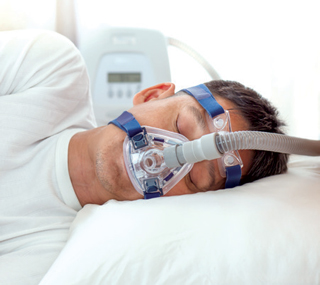
Severe sleep-disordered breathing is linked with stiffening of artery walls and may be related to heart failure.
In a new study in ESC Heart Failure, arterial stiffness increased according to the severity of sleep-disordered breathing in patients with heart failure with preserved ejection fraction.
The findings suggest that treating sleep apnea and other sleep-related breathing abnormalities — i.e., through the use of continuous positive airway pressure devices — may improve the prognosis of certain heart failure patients by decreasing arterial stiffness.
“We hope that CPAP may improve not only hypertension but also arterial stiffness, and lead to improvements in the prognosis of patients with heart failure with preserved ejection fraction,” said coauthor Akiomi Yoshihisa, M.D., of Japan’s Fukushima Medical University.
Researchers observed sleep patterns of 221 heart-failure patients and recorded their sleep stages and arousals from sleep. They were diagnosed with sleep apnea if they experienced an airflow absence of at least 10 seconds or with hypopnea with a more than 30% reduction in monitored hypopnea air flow.
The researchers then measured severity of arterial stiffness across patients, who were categorized based on the severity of their sleep disorder. Patients’ obstructive apnea index, hypopnea index, and blood oxygen saturation levels all worsened with increasing sleep disorder severity.
From the April 01, 2018 Issue of McKnight's Long-Term Care News




